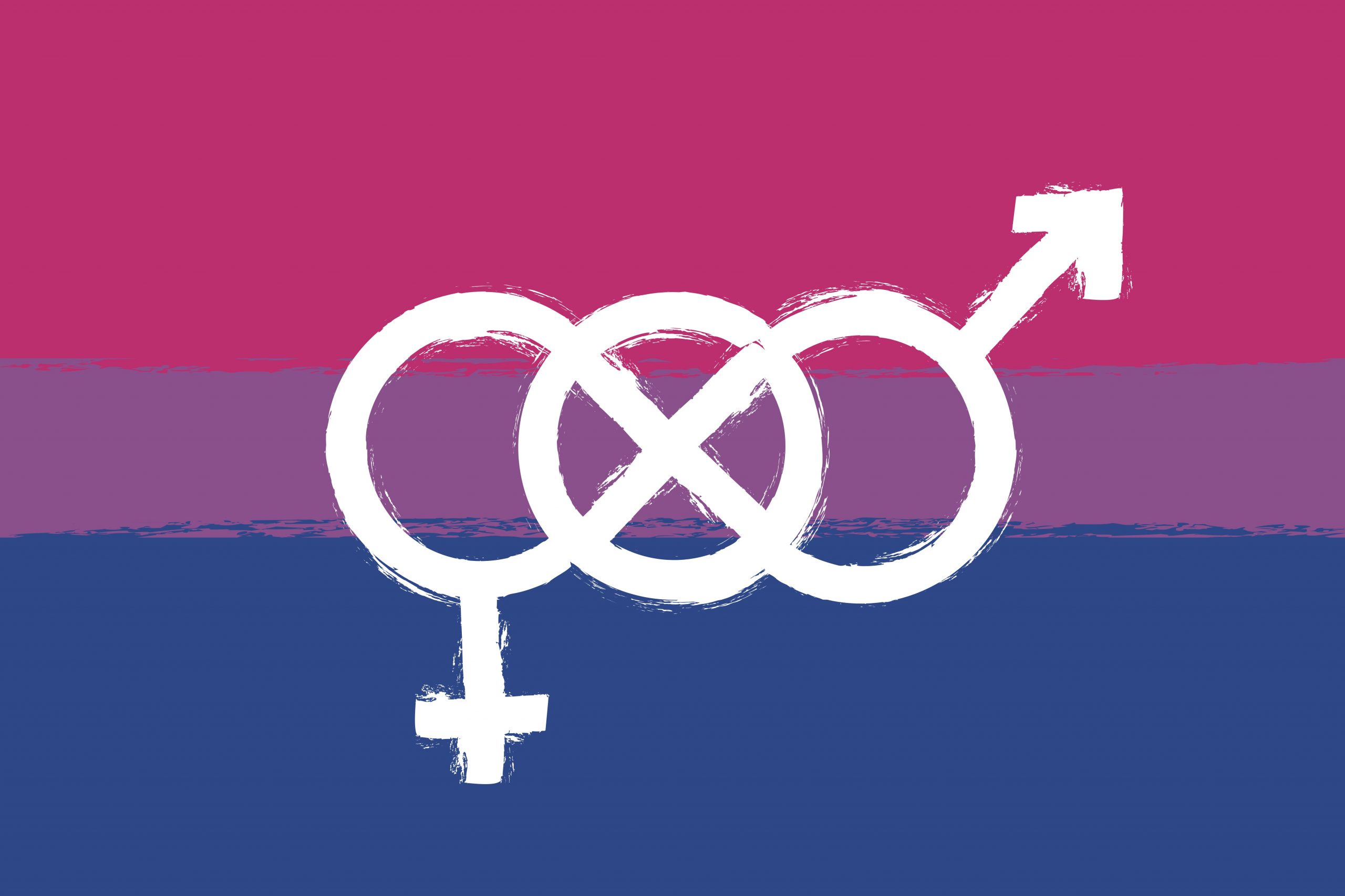
I am proudly, vocally, and vehemently bisexual, regardless of my relationship status or the gender of my partner.
I’ve also thrown myself into the bi community, and that’s meant attending many an event discussing bi activism. Most recently, I went to the book launch of Dr Julia Shaw’s Bi: The hidden culture, history, and science of bisexuality, which was a truly excellent event. We spoke about everything from bi icons, bi science, the history of the word bisexual (the two in bi is homo & hetero, and has been for more than a century), and the bi gene. A crucial focus was put on the plight of asylum seekers, more critical than ever given the Rwanda situation, and the burden of proof for being LGBTQ, and specifically bi – how does one prove that, and how do we counter the assumption that bi people can just choose to hide their homo side and ‘be hetero’ in dangerous situations?
A room full of bisexuals celebrated our history and our culture, and I was reminded of how many excellent bi activists are fighting the LGBTQ fight. But what we’re missing is the bi fight – what’s the ‘bisexual ask’? What are we fighting for?
I ask this as someone championing diversity and inclusion in the workplace, who has in turn been asked this question by people trying to do the right thing. With gay and lesbian employees, the asks are relatively clear – inclusive policies including fair parental leave, freedom of expression especially when talking about partners and social lives, not being sent to homophobic countries without adequate protection. And even for the trans community, the fight against transphobic is a mammoth task but there are some clear asks for businesses and organisations; gender neutral loos, pronoun use, healthcare coverage for trans-related health needs as a start.

So what’s the bisexual ask? Some, but not all, of us will benefit from the gay & lesbian policies. And some, but not all, will benefit from the trans ones. But it seems we are lacking policy structures and a clarity of ask which is specific to us – while there is no shortage of community-specific problems. Bi people have unique health issues (both in terms of mental health and physical health), a glaring lack of accessible communities (though things have improved some in recent years), and ultimately lower life expectancies; almost half of all bi women have considered or attempted suicide.
When I asked Dr Shaw my ‘bisexual ask’ question, she spoke about visibility. She advocated for using the word bisexual in press releases and messaging (especially during pride or when talking about LGBTQ issues). She was clear about having bisexuals on your ‘LGBT’ panels, and inviting bi employees to share their stories.
This is vital, but there’s a huge burden on bisexual people – it necessitates a grassroots approach which other groups don’t suffer from. This is especially hard when 80% of bi people aren’t out, and of those that are out, a further 40% go back in the closet at work.
I think we need more research, thought, and activist time to go into finding solutions to these problems. Part of this ties to funding, or the lack thereof – bi groups are almost always run by unpaid volunteers, and a tiny proportion of LGBTQ funding goes to bi-specific causes. It’s incredibly hard to fight for intangible solutions, and in the move to increased DE&I work at a corporate, policy, and societal level, the bi community needs to have its asks to hand.
This is no mean feat. We also cannot simply do nothing until it happens. So in the meantime. here are my calls to action for those looking to improve the experience of bi people in the UK and beyond.
Sandy Downs is the head of diversity, equity, and inclusion at Teamspirit, the financial services communications agency (part of VCCP Business), where she is responsible for DE&I strategy, advocacy, and communication. She is also an experienced public relations practitioner, specialising in financial services communications including reputation management and crisis comms.

